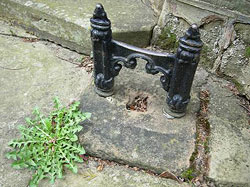|
The ones that are recorded and publicised are the pleasant ones. But they all happen during life, even if in the final moments.
The lesson to be learned is that, although these things are very convincing, we have a choice - do we accept the word of God in the Bible? Or do we accept the evidence of our senses and place our own construction on it. Because it is commonly held that the good go to heaven when they die, and the wicked go to hell, we see in these things the evidence that this is so. We have been conditioned to think this way and so we put that interpretation on the words recounted. When we come to trust the Word of God, we realise that this understanding is contrary to all that God has said. This is where it takes a strong faith in the Bible to take Him at His word and find the true reason for these experiences, instead of responding in a more |
 |
| emotional or sentimental and conditioned way. |
People who are ‘near death’ are not dead. They are still alive and have a degree of mental functioning. The Bible says this is a sign of life, as those who are dead sleep in the grave and know nothing and remember nothing. If you have been comforted by this kind of experience or have heard or read of such things, then it is hard to come to terms with the fact that God is saying something different; but the Bible is consistent, and comforting without deceiving us.
There are two picture frames in which to place all the events of our lives, and we can choose which view we will take of life. |
- One is the frame of tradition, and folklore going back a long time, so long even, that these ideas have coloured our religious experience and thinking too.
- The other is the framework of the Scriptures, the Bible, which goes back even further - right to the beginning.
|
It can be unsettling when we are faced with new propositions, particularly when we feel sad or bereft, but if we are morally and intellectually honest we have to question what we have always held to be true. Often we hold certain views only because everyone does. We have grown up with the idea, and no one else around us says anything different. We believe what we believe just because it is the majority view. In this case it is commonly believed that we go to heaven when we die, or move to another plane of existence. So all the things we see or hear - like ‘near-death experiences’ - are placed in this particular context. We experience these things and assume that we or our loved ones are going to heaven at that time.
The Bible view is that, when we die, we sleep in the grave until the resurrection and then, if we have been found worthy, we are taken to heaven. This framework is logical and solidly reliable. These are the words of God: |
 |
Marvel not at this: for the hour is coming, in the which all that are in the graves shall hear his voice, and shall come forth; they that have done good, unto the resurrection of life; and they that have done evil, unto the resurrection of damnation. John 5:28.29
This is when the rewards are given. We do not go to heaven when we die, but at the resurrection.
These things are disturbing and can cause puzzlement and even distress. Death is painful enough without being disturbed by new idea, and there can be a desire to reject these Bible truths immediately to go back to the security of long-held beliefs. The challenge of the Bible, however, is to: |
|
<< Back | More >>
[ Home ][ About Us ][ Lonely Questions ][ Contact Us ]
Copyright © 2008 deathandbeyond.org.uk |
